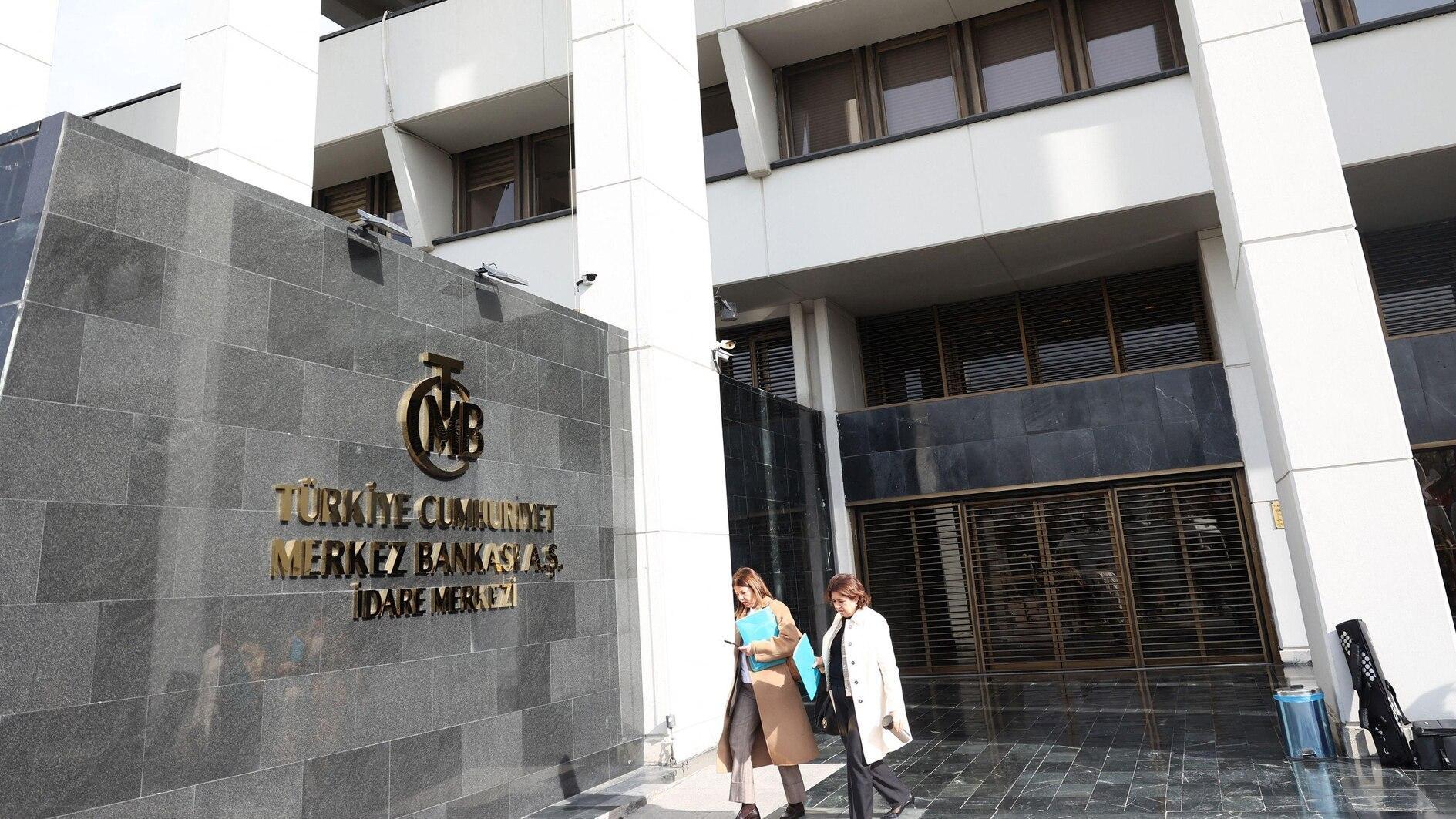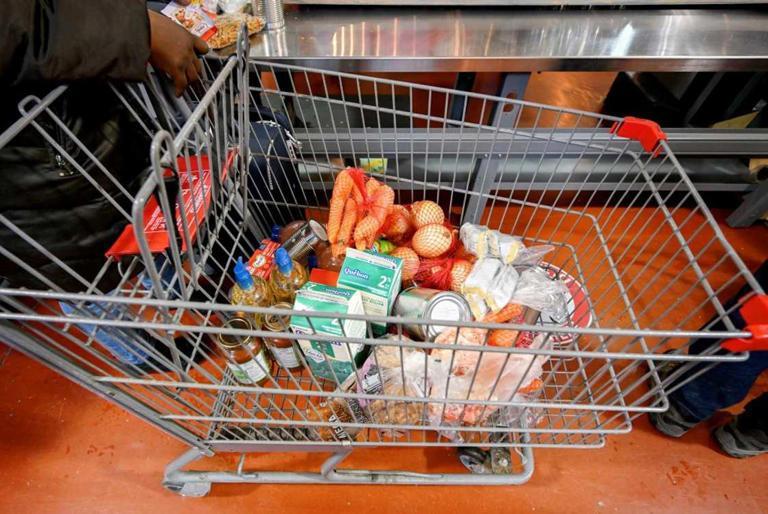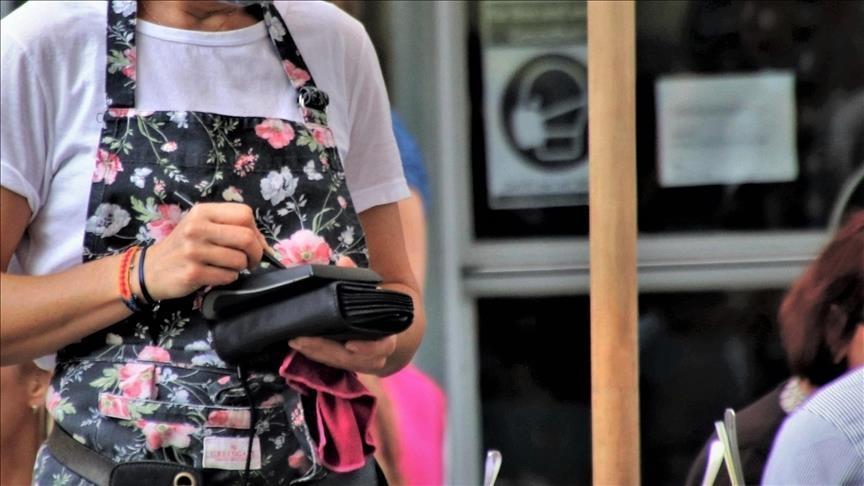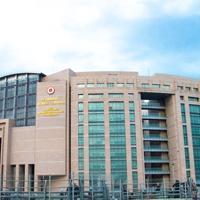Economy
Inflation expectations for end of 2025 improve, shows survey
ANKARA

Inflation expectations for the end of 2025 declined from a previous 28.3 percent to 28.04 percent, a Central Bank survey showed on March 7.
class=”cf”>
Türkiye’s annual inflation rate eased for the ninth consecutive month in February, slowing to 39.05 percent, with consumer prices rising 2.27 percent month-on-month.
Consumer prices are forecast to rise by 2.27 percent in March, and 2.25 percent in April, according to the survey.
The 12-month ahead inflation expectations also improved, falling from 25.26 percent to 24.55 percent.
In February, the Central Bank lifted its annual consumer inflation forecast for 2025 from the previous 21 percent to 24 percent, while keeping its forecast for 2026 unchanged at 12 percent.
The 24-month ahead inflation expectations declined from 17.26 percent to 17.06 percent.
As inflation continued to decline, the Central Bank lowered its key interest rate by a further 2.5 percentage points on March 6.
The bank’s Monetary Policy Committee said it was reducing its benchmark one-week repo rate from 45 percent to 42.5 percent.
class=”cf”>
It was the bank’s third rate cut in a row.
“Considering the risks to the inflation outlook, we continue to think that the total [rate] cuts for the year could be more limited than markets expect,” Haluk Bürümcekçi, an economist, told state-run Anadolu Agency agency, commenting on this week’s interest rate reduction.
While the committee retained its positive evaluations regarding the inflation trend, it preferred a more cautious tone of the growth outlook, Bürüncekçi said.
Participants of the Central Bank’s survey lifted their GDP growth expectations for 2025 from a previous 3 percent to 3.1 percent, while increasing growth forecasts for 2026 from 3.9 percent to 4 percent.
The Turkish economy expanded by 3.2 percent last year to reach a size of $1.32 trillion, after growing 5.1 percent in 2023.
The current account balance is expected to post a deficit of $19.4 billion at the end of this year, an upward revision from the previous $18.8 billion, showed the survey. But participants’ current account deficit forecasts for 2026 improved from $24.6 billion to $24.49 billion.
The Central Bank’s Market Participants Survey monitors the expectations of experts and decision-makers from financial and real sectors related to various key economic variables.
Economy
Sweden to hold talks on countering soaring food costs
STOCKHOLM

Sweden’s government said it will hold talks with food producers and distributers as a consumer movement over soaring costs in the Nordic country gains traction.
class=”cf”>
Annual food price inflation in Sweden hit its highest rate in two years in February at 3.9 percent.
Meanwhile, the independent watchdog site Matpriskollen (The Food Price Checker) found in January that prices in Swedish grocery stores had risen by 19.1 percent over two years.
“In view of the rapid price developments in the first months of the year and the rising prices in recent years, the Minister of Finance and Rural Affairs Minister will invite selected actors from the food supply chain for talks,” the government said in a statement.
The aim of the talks is to “listen to the industry’s assessment of the situation and work together to lower prices for customers,” it added.
The move comes as a viral online campaign calling for a boycott of major grocery stores next week has picked up speed.
One of the campaigners, Annika Morina, told newspaper Aftonbladet that she reached her breaking point buying tomato puree on Valentine’s Day.
class=”cf”>
“It had gone up 50 percent. I’ve seen these kinds of boycotts in countries in the Balkans and felt: ‘Why don’t things like that happen in Sweden?’,” she said.
She posted a video to TikTok calling for the boycott which has received tens of thousands of views and according to Aftonbladet thousands are expected to join the boycott.
Consumers in Croatia frustrated by soaring prices massively joined two boycott calls in January, sending daily sales down by over 40 percent.
Economy
UK boosts export financing for defense firms by $2.6 billion
LONDON

Britain’s Chancellor of the Exchequer Rachel Reeves (C) meets with defence suppliers at RAF Northolt on March 6, 2025 in Ruislip, west of London. Reeves met with UK defence suppliers to Ukraine.
The British government said on March 14 that it would increase its export credit facilities for weapons manufacturers by two billion pounds ($2.6 billion) to boost overseas sales.
class=”cf”>
The new funds “will see billions of pounds unlocked for U.K. defence companies that export overseas, driving economic growth and creating jobs across the U.K.,” it said in a statement.
Already the U.K. Export Finance agency has a lending capacity of eight billion pounds specifically for government clients of defence contractors, bringing the new total to 10 billion pounds.
Like other countries across Europe, Britain is racing to beef up its military production capabilities in the face of an expansionist Russia, pressure on European members of NATO to spend more on defence, and questions over President Donald Trump’s commitment to U.S. protection of Europe.
British Prime Minister Keir Starmer pledged ahead of a White House visit in February to boost defence spending to 2.5 percent of the economy by 2027, with the aim of hiking it to 3.0 percent in the next parliament.
“The world is changing, and we must bring about a new era of security and renewal that protects working people and keeps our country safe,” Chancellor of the Exchequer Rachel Reeves said in the statement.
Economy
Growth in services production index accelerated in January
ANKARA

The services production index increased by 6 percent on an annual basis in January, gathering pace from the previous month’s 2.6 percent rise, data from the Turkish Statistical Institute (TÜİK) showed on March 14.
class=”cf”>
The monthly increase in the index also quickened from 1.3 percent in December to 2.5 percent in January.
The index for transportation and storage services increased by 3.2 percent year-on-year but declined by 0.5 percent month-on-month.
Accommodation and food services rose 9.6 percent from a year ago and 0.5 percent compared to the previous month, the statistics authority said.
The annual and monthly increases in the index for information and communication services were 9.9 percent and 6.4 percent, respectively.
Real estate services rose 8.9 percent year-on-year, according to TÜİK data.
The prevalent price-setting behavior in the services sector leads to significant inertia and causes the impact of shocks on inflation to extend over a long time period, the Central Bank said in the summary of the March 6 Monetary Policy Committee meeting released on March 13.
Services inflation remains higher than goods inflation, it said, adding that having slowed down in the final quarter of 2024, services inflation increased in January due to the effects of items with time-dependent pricing.
-

 Daily Agenda2 months ago
Daily Agenda2 months ago5 suspects nabbed for sharing information with Iranian intel
-

 Politics2 months ago
Politics2 months agoSoutheastern city enforces fines to tackle student absenteeism
-

 Lifestyle2 months ago
Lifestyle2 months agoTürkiye’s Embassy in Doha hosts iftar for alumni to foster connections
-

 Refugees2 months ago
Refugees2 months agoInternational Women’s Day: global protests demand equal rights
-

 Daily Agenda2 months ago
Daily Agenda2 months agoTrump hangi ülkelere yasak getirdi.
-

 Politics2 months ago
Politics2 months agoIstanbul ‘may break 110-year temperature record for March’
-

 Sports2 months ago
Sports2 months agoPaulista 19 maç sonra geri döndü, maç sonrası isyan etti
-

 Economy2 months ago
Economy2 months agoSweden to hold talks on countering soaring food costs

